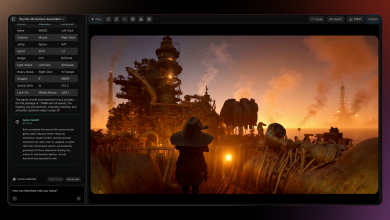
For many years, the travel sector has focused heavily on personalisation. It obsessed over customer’s previous bookings, historical preferences and budgets. So, the first wave of AI in travel focused on convenience and personalisation. Search engines learned travellers’ preferences and recommended hotels based on past stays, or flights based on price alerts. This approach was effective, and it was optimised for efficiency. But the issue was that it only offered a partial resolution. The humans are complex, and our needs evolve rapidly. We cannot be restricted to the previous years’ needs or goals.
The old trends on the ‘what’ and ‘where’ of travel are no longer relevant because they mostly neglected the important ‘why’ and ‘how.’ Now, we’ve developed a more advanced framework. The goal of this next AI generation is to discover the “intent behind the intent” of the travel. It exposes something that has never been discovered before: the underlying motivations driving a journey.
Personalisation to Purpose
The modern traveller frequently encounters a contradiction. We desire ease – the capability to plan a journey with just a few clicks, but also sense an increasing duty to reduce our footprint.
Nowadays, the majority of AI in travel personalises based on preferences, such as cost, convenience or comfort. The next frontier is personalisation that integrates ethics, filtering options by carbon intensity, cultural impact and regenerative value. This shift aligns with clear consumer demand. A 2023 report from the World Travel & Tourism Council (WTTC) found that a majority of travellers consider sustainability as important, yet they frequently feel limited by a lack of knowledge or an abundance of options. Evidently, there’s a crucial disconnect. The visitors wish to do good, but the existing mechanisms make it challenging.
The algorithms, which were originally designed to minimise friction and enhance speed, are now being modified to tackle this conflict. The next generation of travel is not about finding the cheapest flight or the most luxurious resort. It focuses on assisting you in narrowing down countless choices to those that satisfy your deep motivations, personal values and sustainability goals. This marks a shift from a transaction-based model to a values-based one. And this changes travel as we know today into something completely new.
The Role of Emotionally Intelligent AI in Shaping a New Travel Paradigm
Nowadays, people don’t just book a trip – they seek an experience, a connection or a transformation. A sophisticated emotionally intelligent AI system that uncovers the “intent behind the intent,” can truly unlocks new dimension of possibilities. It understands that no two people are the same.
The AI interprets simple search or keywords like ‘eco-friendly’ or ‘local’ differently. It also understands that a traveller looking for a ‘wellness retreat’ might be motivated by a desire or need to relieve stress. For example, AI can then recommend experiences fit the specific travellers, at the same time as prioritising their minimal environmental footprint. This elevates ethical considerations from an afterthought to a core part of the decision-making process. This method makes travel more meaningful and purposeful. But most importantly, we are giving you the power back to you to make your own decisions based on your personal goals and values.
Transparency and Collaboration
Imagine if we were to research our impact on travel, how it will look. We have to look for the carbon intensity of a specific airline route, hotel energy use, and the community impact so on. The task of manually vetting every travel option is impossible. AI can automate these complex processes, turning this daunting task into an accessible tool for conscious travel. The potential is immense, but it’s not without its challenges.
For these systems to be truly effective, they must be built on a foundation of transparency and trusted data. We need to ensure that we don’t simply create a new set of biases. If the datasets used to train these systems do not sufficiently represent the offerings of small operators or minority-owned enterprises, they run the danger of being excluded. Similarly, there is also a danger of shallow scoring, in which simplistic ‘eco-badges’ that lack thorough verification run the risk of misleading customers and eroding ecosystem-wide confidence.
The EU AI Act lays out specific guidelines for high-impact AI systems in terms of responsibility, transparency, and supervision. In addition, the United Nations World Tourism Organisation (UNWTO) advocates for a more robust incorporation of sustainability principles into the planning and assessment of travel. The idea is straightforward: AI in tourism needs to be designed with safety, equity, and accountability in mind. In order to create a reliable and just future for the travel industry, transparency and cooperation between technologists, travel agencies and regulators are crucial.
North Star of the Modern Traveller
Travel and artificial intelligence coming together is a powerful driver for change. The industry is making the shift from a transactional model to deciding ‘what’s available’ to a purpose-driven model determining ‘what’s right.’ By leveraging AI to understand our deeper motivations and filter for personal sustainable goals, we can transform travel from a simple booking to a conscious decision.
AI can be a powerful catalyst, providing the tools to illuminate complex choices and empower travellers to act on their values. It is a step toward a future where our love for exploration no longer comes at the expense of our planet or its people.




